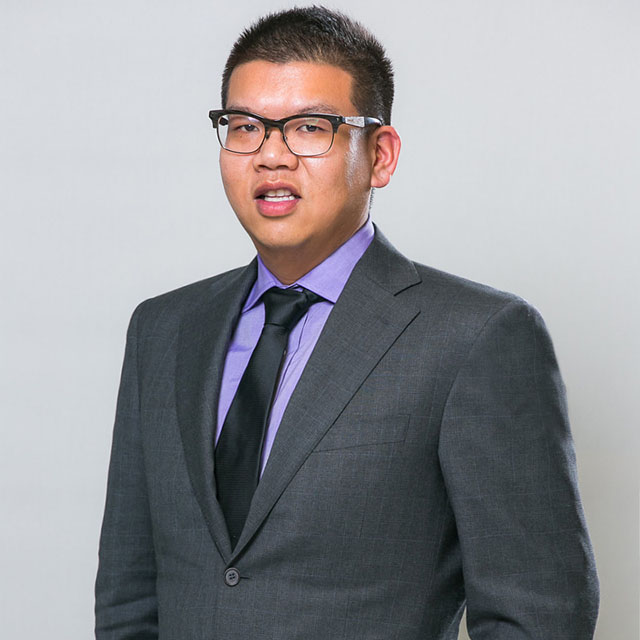JD an Essential Legislative Tool for Political Operative

By the time Sam Liu ’11 entered Loyola Law School, Los Angeles, he knew California politics well. He was working for a state legislator, and he’d helped run a few election campaigns. Even so, he says, his Loyola education made him a much better legislative aide.
“Loyola gave me the tools to understand how the law impacts people and how it could be interpreted to help or hurt our constituents,” Liu says. “It shaped my perception of how policymakers should look at and interpret the law.”
Now the deputy chief of staff to California State Sen. Ben Allen (D-Redondo Beach), Liu entered law school assuming he would become a practicing attorney. But early on in his education, politics and elections lured him back: Liu was elected president of the Day Student Bar Association and was drawn to classes that covered issues from his public-service career.
“Loyola really fostered that curiosity I had in politics because it offered the curriculum and expert professors in the field of election law,” he says.
With a Course of Study in Law & the Political Process, Loyola draws on its traditional strengths in fields of law related to elections and political life. The full-time faculty includes such nationally recognized experts as Jessica A. Levinson, president of the Los Angeles Ethics Commission, and Justin Levitt, the school’s associate dean for research who is an expert in voting rights and redistricting.
Still reliant on his Loyola classes, Liu says that his Election Law class and a course on municipal law are still relevant to his day-to-day job as a high-level legislative aide. “Law school teaches you another language,” he says. “It’s very important in working with policymakers to know how to understand and interpret the law while you’re in the process of writing new laws.”
Other classes he took also matter in his legislative work today, including core subjects like Trusts & Wills, Business Associations or Property Law. “These are all topics at the heart of myriad different bills with which we deal,” he says.
Liu says no student activity influenced him more than Loyola’s Youth Justice Education Clinic. A unit of Loyola’s Center for Juvenile Law & Policy, the clinic helps secure for its youth clients the school services to which they are entitled. “That experience working with the foster care system and troubled youth helped shape my priorities now in government,” says Liu.
After graduating in 2011, Liu first worked at the Alliance for Children’s Rights and then as a research attorney for the special Citizens Commission on Jail Violence under the Los Angeles County Counsel’s office. From there, he ran several other political campaigns before joining State Sen. Allen’s office in 2014.
Liu says Loyola taught him the lawyer’s approach to problems — spot the issue, apply the rules — that provides a roadmap for him now. It also taught him the importance of reading the fine print – literally and figuratively.
“So much of my job is understanding complex policies, digesting them for the regular human being and letting people know how they may impact them,” Liu says. “In this era of fake news and alternative facts, it really helps to grasp the baseline facts and how go forward from them.”
A consummate coalition builder, Liu takes makes the most of Loyola’s strong alumni network of lawyers in the L.A. area, calling on contacts for insights and advice. For students interested in politics, he offered to be part of their network, too. “If they know they want to get into politics and law, they should definitely talk to me,” he says.
Are you ready to make a difference in the world? Find out more about how a JD from Loyola Law School, Los Angeles can help.